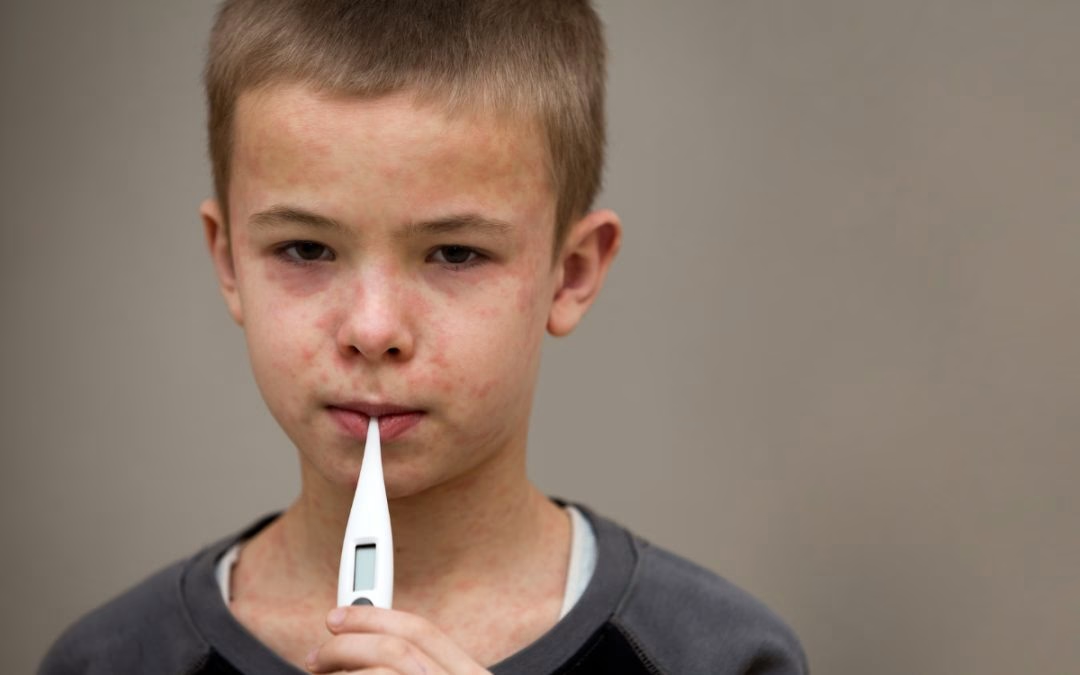
On a beautiful spring afternoon in Gastonia, it’s easy to enjoy strolling around downtown, grabbing a sweet treat from Tony’s Ice Cream, and soaking in the sense of community. But while life feels normal, a concerning health issue is quietly making headlines across the country: a measles outbreak is spreading, with confirmed cases in Texas, Oklahoma, New Mexico, and other states. This has many people wondering if they should be worried about the measles outbreak.
Let’s walk through the facts about measles, what’s fueling the recent outbreaks, and how you can stay safe.
What Is Measles?
Measles, also called rubeola, is a highly contagious viral infection that primarily affects the respiratory system. It spreads through airborne droplets when an infected person coughs, sneezes, or even talks. What makes measles particularly dangerous is that the virus can remain in the air or on surfaces for up to two hours after an infected person has left the area. That means you don’t have to be in direct contact with someone to catch it.
Symptoms typically appear 7–14 days after exposure and may include:
- High fever (often over 101°F)
- Cough, runny nose, and red, watery eyes (sometimes called the “Three C’s”)
- Tiny white spots inside the mouth (Koplik spots)
- A red, blotchy rash that usually starts on the face and spreads downward
While measles can cause mild illness in some, it can also lead to severe complications, especially in young children, pregnant women, and people with weakened immune systems. Potential complications include pneumonia, brain swelling (encephalitis), hospitalization, and even death.
Why Are We Seeing a Measles Outbreak Now?
Measles was declared eliminated in the United States in 2000, meaning there was no continuous disease spread for more than 12 months. However, in recent years, vaccination rates have declined due to several factors, including vaccine hesitancy, misinformation, disruptions in healthcare access during the COVID-19 pandemic, and global travel.
When vaccination coverage drops, measles finds an opening to spread. It’s incredibly contagious; if one person has measles, up to 90% of the people close to them who aren’t immune will also become infected.
In 2024, reported cases in the U.S. have already surpassed the total number recorded in previous years, with clusters of outbreaks linked to areas where vaccination rates have fallen. With increased travel and interconnected communities, even small pockets of unvaccinated individuals can fuel widespread transmission.
How Does Measles Spread?
Understanding how measles spreads is crucial to preventing it:
- Airborne transmission: Inhaling air contaminated with the virus
- Surface contact: Touching a surface where the virus has settled, then touching your mouth, nose, or eyes
- Direct person-to-person contact: Hugging, shaking hands, or sharing utensils with someone infected
Because the virus can live in the air and on surfaces for hours, everyday places like schools, grocery stores, and even healthcare waiting rooms can become points of exposure if precautions aren’t taken.
How Can I Protect Myself and My Family?
The good news is that measles is highly preventable through vaccination and basic hygiene practices.
- Vaccination: The MMR vaccine (measles, mumps, and rubella) is about 97% effective after two doses. Children usually receive the first dose between 12–15 months old and a second dose between 4–6 years old. Adults who are unsure about their vaccination status can get tested or receive a booster.
- Early isolation: If someone shows signs of measles, immediate isolation is critical to preventing further spread.
- Hygiene practices: Frequent handwashing, surface disinfecting, and mask-wearing in high-risk settings can also help reduce transmission.
If you suspect measles exposure or symptoms, it’s important to:
- Call an AFC healthcare provider before visiting a clinic to avoid exposing others
- Stay home and isolate until cleared by a
- Follow all medical advice for recovery and infection control
Could It Be Something Else?
Several illnesses have symptoms that mimic measles, such as:
- Rubella (German measles): Causes a rash and swollen lymph nodes but usually milder symptoms
- Roseola: Rash appears after a high fever resolves
- Scarlet Fever: Features a rough-textured rash and “strawberry tongue”
- Fifth Disease: Known for a distinctive “slapped cheek” rash
Accurate diagnosis is important, which is why visiting a healthcare provider is key if you or your child develops a rash or high fever.
How AFC Gastonia Can Help
At our clinic, we’re committed to keeping our community healthy and informed. We offer MMR vaccinations and can review your immunization records to ensure you and your family are fully protected.
If you’re unsure about your vaccination status, need a booster, or want to catch your child up on routine immunizations, we’re here to help. Our skilled medical team can also evaluate symptoms if you’re concerned about possible measles or other infectious illnesses, all with the convenience of walk-in care and minimal wait times.
Final Takeaway
So, should you be worried about the measles outbreak? It’s understandable to feel concerned, but the best response is proactive protection. Staying up-to-date on vaccinations, practicing good hygiene, and seeking timely medical advice can significantly lower your risk.
AFC Gastonia is proud to stand with our community to prevent the spread of measles and other vaccine-preventable illnesses. Together, by staying informed and protected, we can keep Gastonia thriving and safe for everyone. Visit us today.